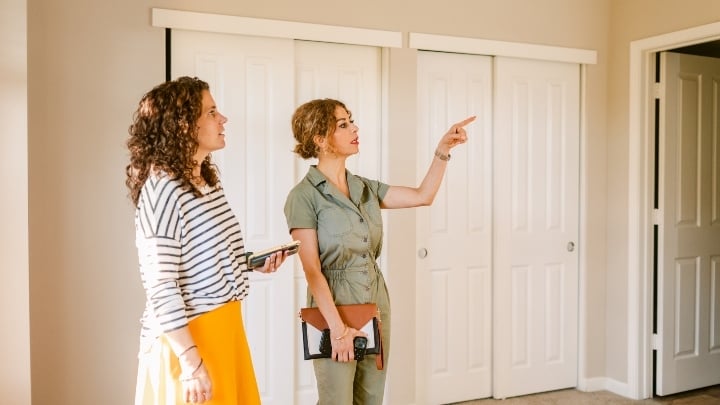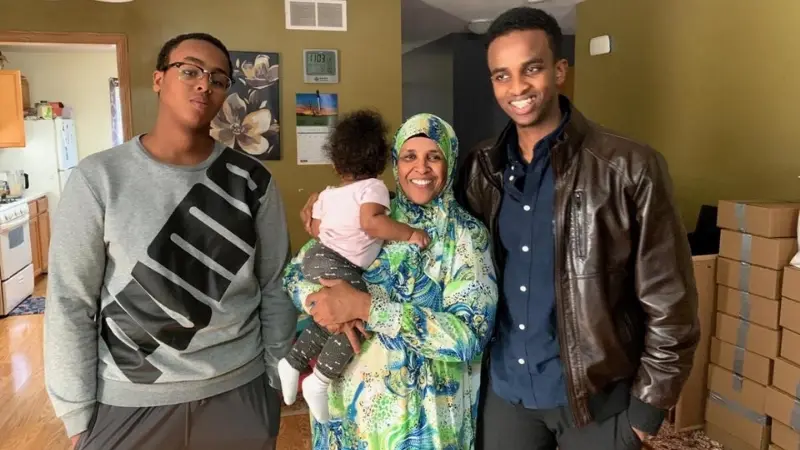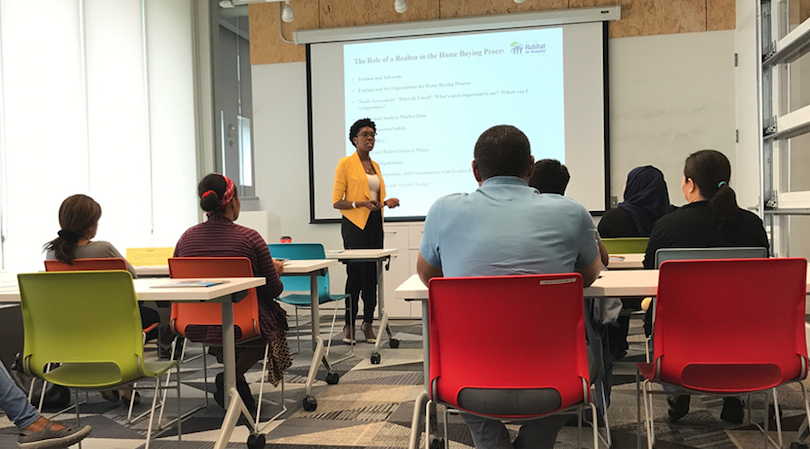What to Do When You’re Ready to Sell Your Habitat Home
Photo: Hamida and her family sold their Habitat home after 12 years of building warm memories together. Homeownership is a fundamental part of...
3 min read
 Twin Cities Habitat for Humanity
:
3:25 PM on November 14, 2025
Twin Cities Habitat for Humanity
:
3:25 PM on November 14, 2025

As a single parent, home maintenance concerns can feel overwhelming when you're already managing work, childcare, and everything in between. You worry about it late at night. The furnace makes that strange sound. The bathroom faucet that won't stop dripping.
But you don't need to be an expert at fixing everything. You just need to know what you can realistically handle and where to find support when you need it.
Simple maintenance tasks build your confidence and save money without requiring special skills or expensive tools.
Replace HVAC filters (mark your calendar for every 30-60 days)
Check smoke and carbon monoxide detector batteries
Clean dryer vents to prevent fire hazards
Wipe down appliance seals to prevent mold
Clean gutters (with proper safety equipment and someone to spot you)
Touch up paint on walls and trim
Add caulk around windows and doors to prevent drafts
Test your sump pump before spring rains
These tasks might feel daunting at first. But you'll find that many maintenance jobs are more about consistency than expertise. Your local ReStore carries affordable tools and supplies that make these projects manageable.
Even young children can help keep your house in good shape. A five-year-old can hand you tools or hold a flashlight while you check something. Older kids can learn to change air filters or help with yard work. These moments teach responsibility while giving you an extra set of hands. It’s also a nice way to demonstrate pride in homeownership, passing that value on to others.
Some home repairs call for licensed professionals. Recognizing these situations protects your family's safety and your home's value.
Electrical work beyond changing light bulbs
Gas line repairs or appliance installations
Structural issues like foundation cracks
Roof repairs or replacement
Major plumbing problems
HVAC system repairs
It’s more than okay to call for help. You're making a smart decision that protects your investment. Professional repairs done correctly prevent bigger, more expensive problems down the road.
If you're worried about affording repairs, start by getting quotes from licensed contractors. Be sure to check references and verify their insurance.
The strongest tool in your maintenance toolkit is your support network. Twin Cities Habitat provides ongoing support for Habitat homeowners:
The Volunteer and Learn Program connects you with other Habitat homeowners who understand your situation
Regular check-ins from the Homeowner Engagement team
Educational opportunities to build home maintenance skills
Community events where you can ask questions and share experiences
Connect with other homeowners in your neighborhood. They've faced similar challenges and can recommend reliable contractors, share or lend tools, or provide advice based on their own experiences.
Check your local hardware stores for free workshops on basic home repairs
YouTube tutorials can walk you through many common fixes
Community education programs teach practical home maintenance skills
Friends or family members who like DIY projects might enjoy helping
Building these connections takes time, but you're creating a safety net that makes homeownership more sustainable.
You can't do everything at once. A solid maintenance plan helps you stay ahead of problems without overwhelming your already full schedule.
Use your phone to set monthly reminders for filter changes and detector checks
Plan seasonal tasks around school schedules or when kids visit extended family
Budget monthly for home maintenance, even if you don't spend it every month (this fund helps when bigger repairs arise)
Keep a running list of small issues so you can tackle them during free time instead of forgetting them
Knowing the costs of homeownership helps you plan financially. Expect to spend about 1% of your home's value on maintenance each year. Some years cost less, others require major expenses like a water heater replacement.
Address small problems quickly when possible. That dripping faucet wastes water and money. The small crack in the window seal will become a bigger problem in winter. Fixing minor issues prevents them from becoming emergencies at the worst possible time.
Homeownership as a single parent comes with real challenges. But you're already managing everyone’s schedules and keeping multiple people fed, clothed, and safe. Those same skills apply to home maintenance.
You don't need to know everything. Just know where to find help and which tasks you can tackle. Take it one project at a time—and remember that asking for help IS smart homeownership.
Contact Twin Cities Habitat's Homeowner Engagement team to discuss your options. The Habitat Homeowner Resources page lists payment assistance programs, weatherization help, and community resources.
Get three written estimates. Ask them to explain the work clearly. Check reviews and references. Licensed contractors provide proof of insurance. Trust your instincts—if something feels off, get another opinion.
Determine if it's an emergency (such as flooding, gas smell, electrical sparks, no heat in winter). If yes, call a professional immediately. If not, assess whether you can fix it yourself or need help. Document with photos for potential insurance claims.
Yes. The Volunteer and Learn program for Habitat homeowners offers hands-on learning opportunities. Start with simple tasks and build from there. Every homeowner was once a beginner.
Start with basics: hammer, screwdrivers, adjustable wrench, plungers, flashlight, tape measure, level, and drill. Add tools as you need them. Borrow or rent expensive items you'll rarely use. ReStore offers affordable tools for every budget.
Your gift unlocks bright futures! Donate now to create, preserve, and promote affordable homeownership in the Twin Cities.

Photo: Hamida and her family sold their Habitat home after 12 years of building warm memories together. Homeownership is a fundamental part of...

The biggest consideration when making any large purchase decision is how you’re going to budget for it. And for most people, buying a home is the...

No one tells you how many plates a single parent has to keep spinning at once. Yet, behind every seemingly effortless juggle lies an ocean of mental...